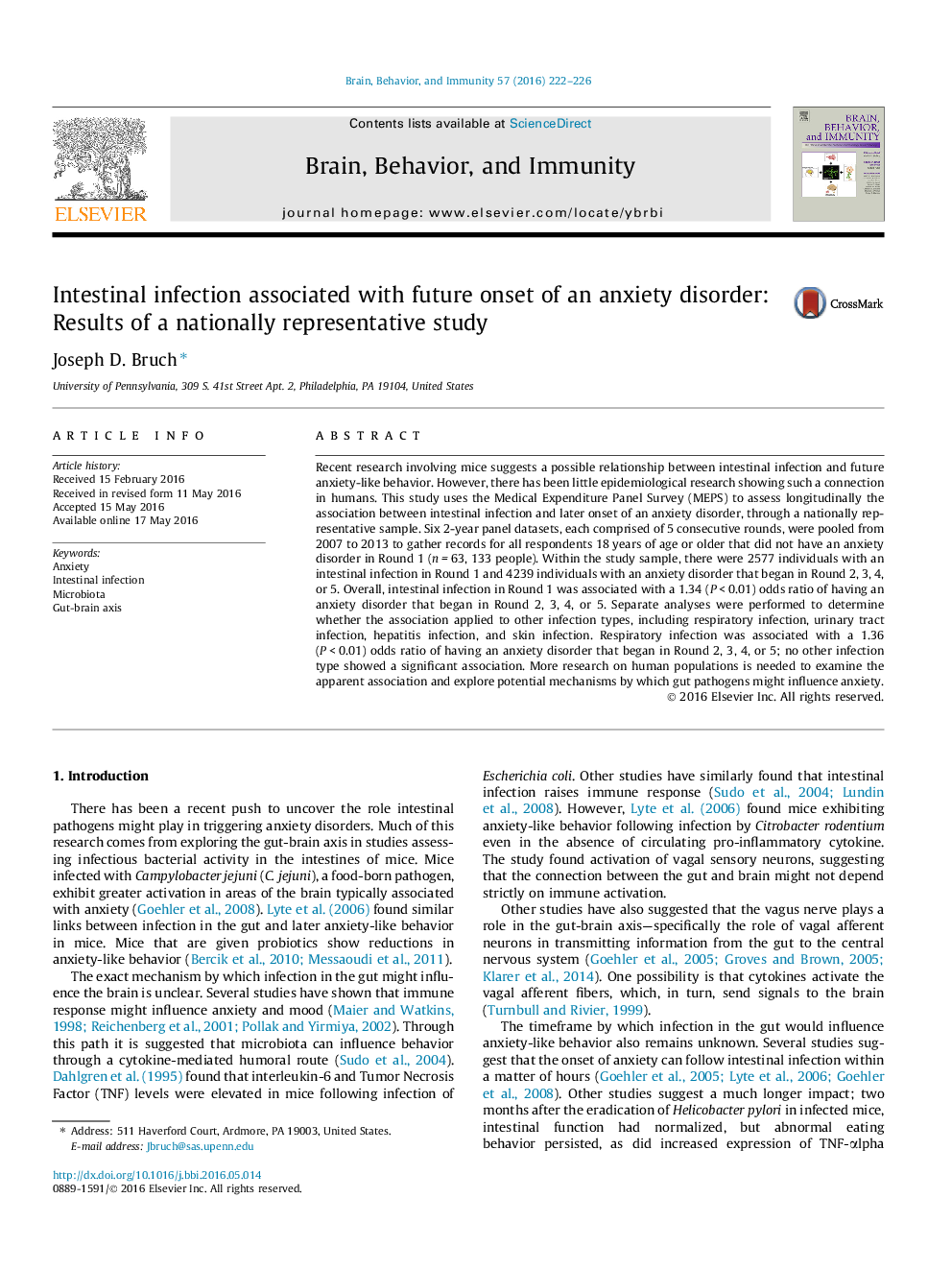| Article ID | Journal | Published Year | Pages | File Type |
|---|---|---|---|---|
| 5041026 | Brain, Behavior, and Immunity | 2016 | 5 Pages |
â¢Large population-based study shows connection between intestinal infection and anxiety onset.â¢Medical Expenditure Panel Survey used to collect nationally representative sample.â¢Future research needed to understand underlying biological mechanisms.
Recent research involving mice suggests a possible relationship between intestinal infection and future anxiety-like behavior. However, there has been little epidemiological research showing such a connection in humans. This study uses the Medical Expenditure Panel Survey (MEPS) to assess longitudinally the association between intestinal infection and later onset of an anxiety disorder, through a nationally representative sample. Six 2-year panel datasets, each comprised of 5 consecutive rounds, were pooled from 2007 to 2013 to gather records for all respondents 18 years of age or older that did not have an anxiety disorder in Round 1 (n = 63, 133 people). Within the study sample, there were 2577 individuals with an intestinal infection in Round 1 and 4239 individuals with an anxiety disorder that began in Round 2, 3, 4, or 5. Overall, intestinal infection in Round 1 was associated with a 1.34 (P < 0.01) odds ratio of having an anxiety disorder that began in Round 2, 3, 4, or 5. Separate analyses were performed to determine whether the association applied to other infection types, including respiratory infection, urinary tract infection, hepatitis infection, and skin infection. Respiratory infection was associated with a 1.36 (P < 0.01) odds ratio of having an anxiety disorder that began in Round 2, 3, 4, or 5; no other infection type showed a significant association. More research on human populations is needed to examine the apparent association and explore potential mechanisms by which gut pathogens might influence anxiety.
